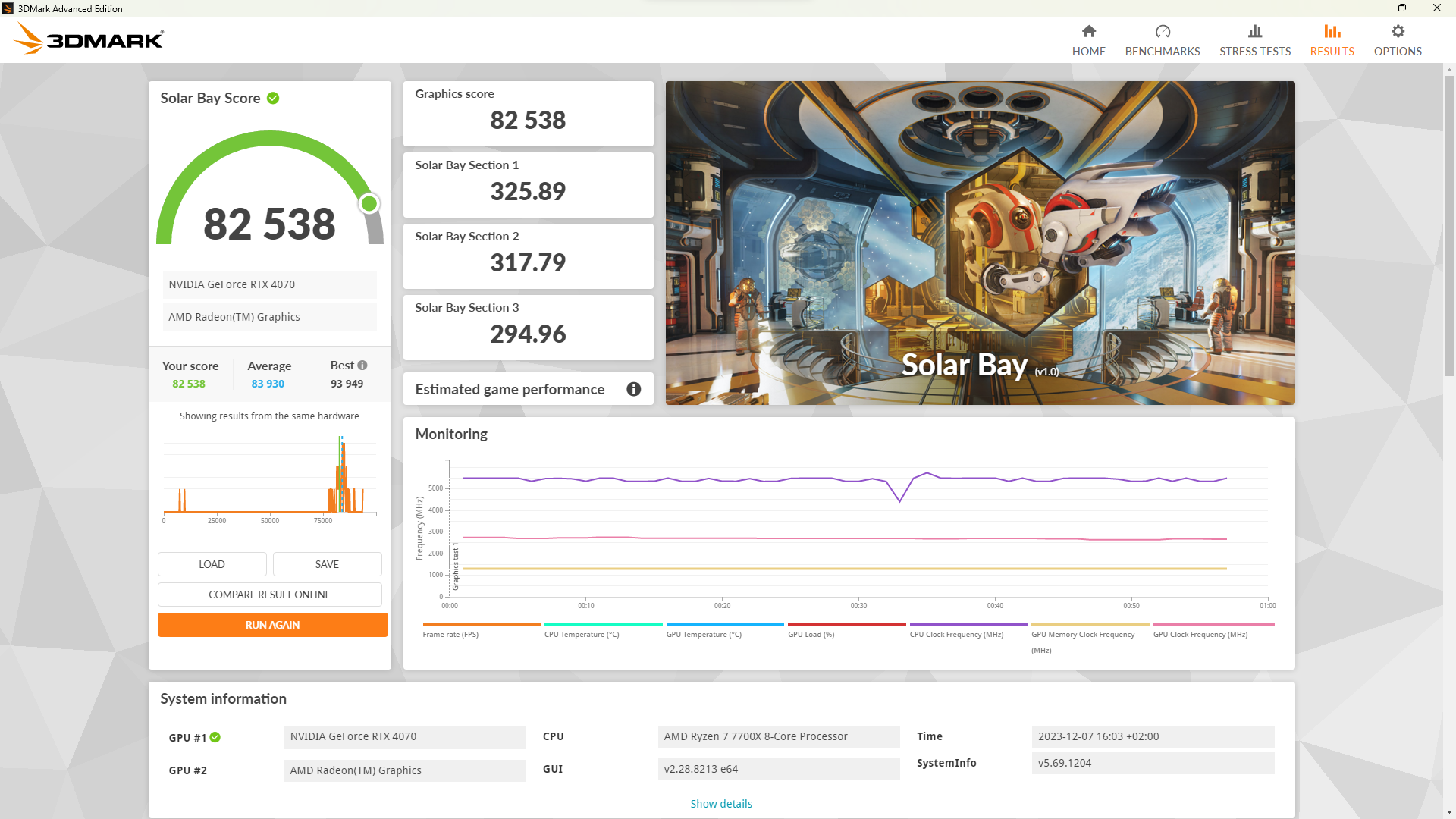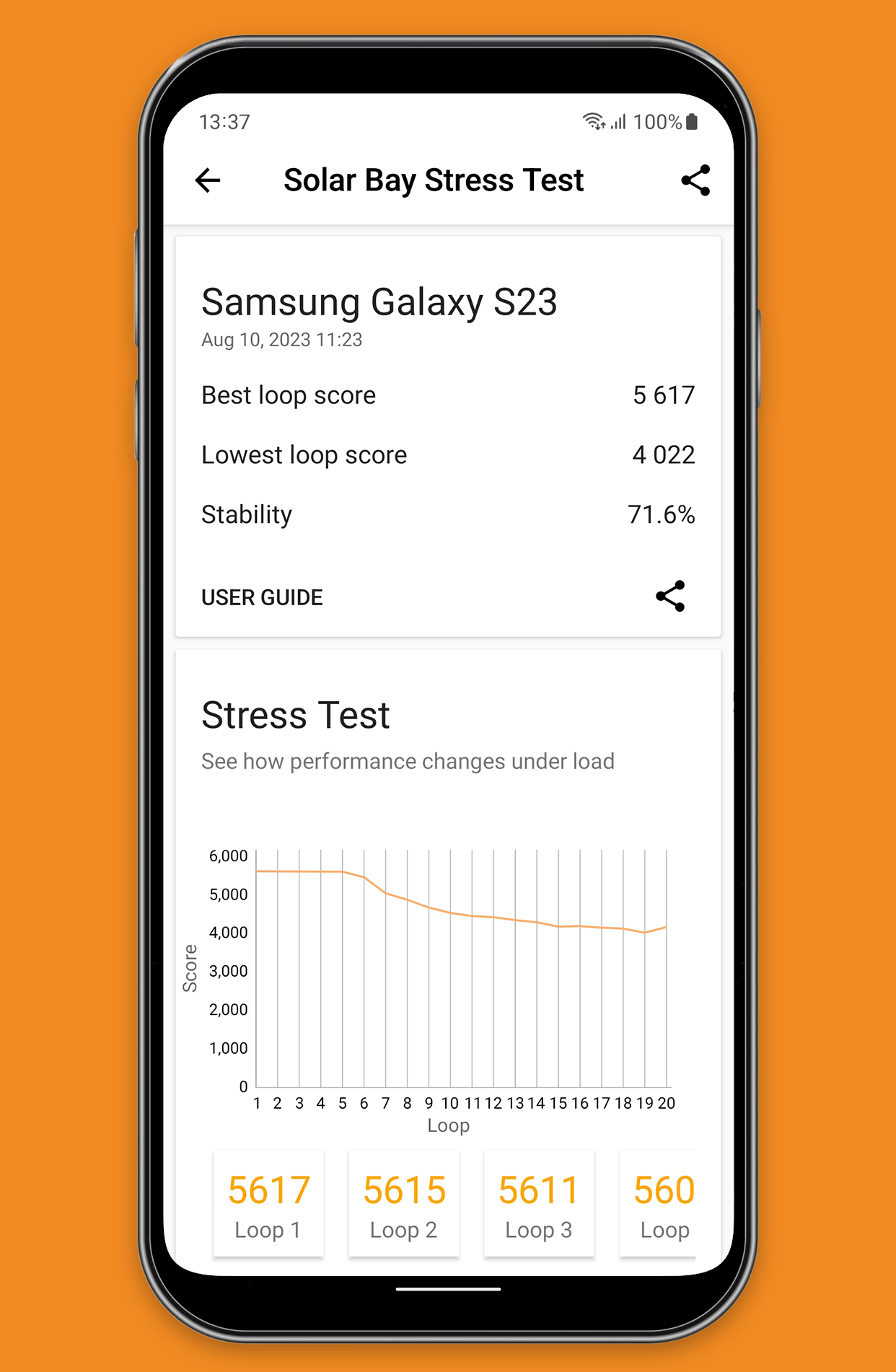Using 3DMark to measure sustained performance.
December 13, 2023
The latest generation of portable tech can run incredibly fast, even with minimal or no active cooling. To meet the demands of a typical device owner, mobile devices like smartphones are capable of delivering high processing power in short bursts.
However, to keep devices from getting too hot, many portable devices don’t maintain their fastest speeds for long. When running many popular mobile games, the full power of a phone or tablet often isn’t needed. This is great for many mobile gamers, but for some hardcore users, the graphics of their favorite games mean they’re more interested in a device’s sustained performance during longer, demanding gaming sessions.
This is proving to be especially true as more devices include processors featuring a variety of different core types. This means a processor can be very efficient when used for lighter tasks but also able to handle demanding next-gen technologies such as ray-traced gaming at the cost of increasing the heat output of a device.
3DMark Stress Tests
We’ve designed our 3DMark stress tests to complement our benchmarks, meaning gamers have a way to easily find out both their device’s peak performance, as well as how it may change over longer gaming sessions. Stress tests run for 20 minutes, by which the average device’s temperature will have stabilized in a typical gaming session and any variation in performance due to the device temperature will be visible. You’ll want to make sure your device hasn’t been running any benchmarks or games before you start the stress test to prevent heat from previous tasks affecting your run.
When you’ve completed the stress test, you’ll get results showing the difference between your lowest score and your highest. You’ll also get metrics showing how performance scaled over time, helping you identify when your device needed to throttle performance to keep itself within a safe temperature range.
Our benchmark recommendations
For testing lightweight Windows, Windows-on-Arm, iOS, Android and Apple Silicon Macs, we recommend you run the stress tests for Solar Bay (if your device can handle ray tracing), or Wild Life Extreme.
For gaming PCs, Speed Way is our most intense benchmark, and the stress test is our best way to test your new gaming PC. Time Spy Extreme is currently our heaviest non-ray tracing benchmark. These recommendations are soon set to change, as our team is hard at work on our successor to Time Spy — 3DMark Steel Nomad — which will be released in 2024. Steel Nomad will support Windows, Windows-on-Arm, Apple Silicon Macs, iOS, Android and Linux devices.
Recent news
-
Procyon® AI Benchmarks Provide Full Coverage and Actionable Performance Insights
January 13, 2026
-
Procyon Labs launches with FLUX.1 AI Image Generation Demo
November 4, 2025
-
3DMark Solar Bay Extreme is available now!
August 20, 2025
-
3DMark Speed Way Teams up with PC Building Simulator 2!
July 17, 2025
-
New Procyon AI Benchmark for Macs now available
June 25, 2025
-
3DMark for macOS available now!
June 12, 2025
-
New Inference Engines now available in Procyon
May 1, 2025
-
Try out NVIDIA DLSS 4 in 3DMark
January 30, 2025
-
Test LLM performance with the Procyon AI Text Generation Benchmark
December 9, 2024
-
New DirectStorage test available in 3DMark
December 4, 2024
-
New Opacity Micromap test now in 3DMark for Android
October 9, 2024
-
NPUs now supported by Procyon AI Image Generation
September 6, 2024
-
Test the latest version of Intel XeSS in 3DMark
September 3, 2024
-
Introducing the Procyon Battery Consumption Benchmark
June 6, 2024
-
3DMark Steel Nomad is out now!
May 21, 2024

